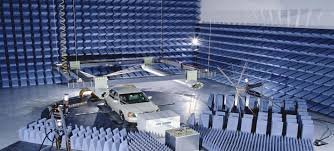Technology is evolving faster than ever, shaping the way we live, work, and communicate. In 2025, we’re set to witness even more transformative shifts across various sectors. From artificial intelligence advancements to the expansion of Web3 and the rise of sustainable tech, these trends will significantly impact industries worldwide. Let’s delve into the key technology trends set to drive the future in 2025.
1. Artificial Intelligence (AI) Advancements
AI continues to be at the forefront of technology. In 2025, we can expect further advancements in Generative AI and Machine Learning. AI tools like ChatGPT and DALL-E have already made significant impacts in areas such as content creation, design, and customer service.
Top SEO Services in Kansas City
Key developments in AI will also include enhanced natural language processing, better predictive analytics, and personalized customer interactions across industries. This year will also see increased focus on Ethical AI, aiming to ensure responsible and transparent AI use that safeguards user privacy.
2. Quantum Computing Breakthroughs
Quantum computing, long seen as futuristic, is advancing more rapidly than many anticipated. Companies like Google, IBM, and Microsoft are making strides in developing quantum computers, with applications across fields like cryptography, drug discovery, and supply chain optimization. As quantum computing becomes more practical, it will revolutionize complex problem-solving, allowing for data analysis on a previously impossible scale.
In 2025, expect more companies to start exploring quantum applications, as its potential to disrupt industries becomes clearer.
3. Web3 and Blockchain Technology
The decentralized web continues to gain momentum, with blockchain and cryptocurrency playing central roles. Web3 technology enables decentralized applications, giving users more control over their data and privacy. As more businesses adopt Web3, we’ll see smart contracts becoming a core component of various platforms, enabling secure, automated transactions without intermediaries.
Also Read:- Check Keyword Ranking in Google
Additionally, NFTs (non-fungible tokens) and decentralized finance (DeFi) will evolve, pushing blockchain beyond its original applications in cryptocurrency.
4. 5G and the Emergence of 6G
5G technology has already revolutionized mobile internet with its high-speed capabilities, but as we move toward 6G, expect even faster speeds and lower latency. In 2025, more businesses will adopt 5G solutions, particularly in IoT (Internet of Things), where fast data transfer rates are essential for devices to communicate effectively.
6G technology, currently in research and development, promises to deliver enhanced connectivity, pushing the boundaries of smart cities and autonomous vehicles. As these networks roll out, industries will be able to leverage the increased speeds and efficiency for greater connectivity and automation.
5. Rise of Sustainable Technology
Sustainability is a critical priority in the tech world. Companies are actively seeking eco-friendly solutions that minimize environmental impact. The emphasis on Green Tech in 2025 will lead to innovations in renewable energy sources, smart grids, and energy-efficient data centers. With sustainability high on the agenda, carbon-neutral and carbon-negative initiatives are expected to increase, helping reduce the carbon footprint of major tech companies.
Eco-friendly technologies are also making waves in manufacturing, where circular production models are being implemented. This year will see tech companies championing sustainability through products designed for longevity, repairability, and recyclability.
6. Metaverse Expansion
The Metaverse, a virtual world where users can interact in real-time, is evolving with applications in gaming, education, and even workspaces. In 2025, the metaverse will continue to grow, powered by advancements in virtual reality (VR) and augmented reality (AR). Platforms like Meta (formerly Facebook) and various gaming companies are developing immersive worlds where users can socialize, work, and learn.
As more brands build experiences in the metaverse, businesses will look at ways to integrate these virtual worlds with real-life applications, paving the way for mixed-reality workplaces, virtual conferences, and digital stores.
7. Cybersecurity Innovations
With the increase in digital adoption, cybersecurity is more critical than ever. In 2025, cybersecurity technologies will focus on protecting digital infrastructure from ever-evolving threats. Expect advancements in AI-driven security tools that proactively identify and mitigate risks before they can affect businesses.
Companies will prioritize Zero Trust Security, ensuring that users are authenticated at every access point. As cyber threats become more sophisticated, cybersecurity solutions will become more automated and precise, enhancing security for businesses and consumers alike.
8. Internet of Things (IoT) Growth
The Internet of Things (IoT) continues to expand, connecting various devices and making our homes, cities, and workplaces smarter. In 2025, the number of connected IoT devices is expected to exceed 30 billion globally. This growth will enable real-time data collection and analysis, benefiting industries like healthcare, agriculture, and manufacturing.
Smart cities are an area where IoT can bring significant improvements, optimizing energy use, traffic management, and public safety. As more industries adopt IoT solutions, the technology will continue to transform how we interact with our surroundings.
9. Augmented Reality (AR) and Virtual Reality (VR) Applications
AR and VR technology is expected to see significant growth in 2025, particularly in areas such as eCommerce, education, and healthcare. AR applications in retail can enhance customer experience by enabling users to visualize products in real-time through their devices, while VR is already transforming medical training by simulating real-life procedures for educational purposes.
From entertainment to real estate, AR and VR will continue shaping immersive experiences, bringing virtual and physical worlds closer together.
10. Automation and Robotics
Automation is set to impact the workforce and manufacturing industries with more affordable and sophisticated robots. AI-driven robots can perform complex tasks, such as warehouse management and medical assistance, boosting productivity and efficiency in various sectors.
2025 will witness more industries implementing robotics solutions to handle repetitive tasks, freeing up human workers to focus on more strategic and creative functions. Collaborative robots, or “cobots,” are likely to grow in use, working alongside humans in areas like healthcare, customer service, and manufacturing.
Conclusion
The future of technology in 2025 promises exciting advancements across AI, quantum computing, Web3, and sustainability. These innovations are not only transforming industries but also reshaping how we interact with technology in our daily lives. As companies adopt and integrate these trends, they are preparing to meet evolving user expectations, streamline operations, and contribute to a more connected and sustainable future.











Leave a Reply